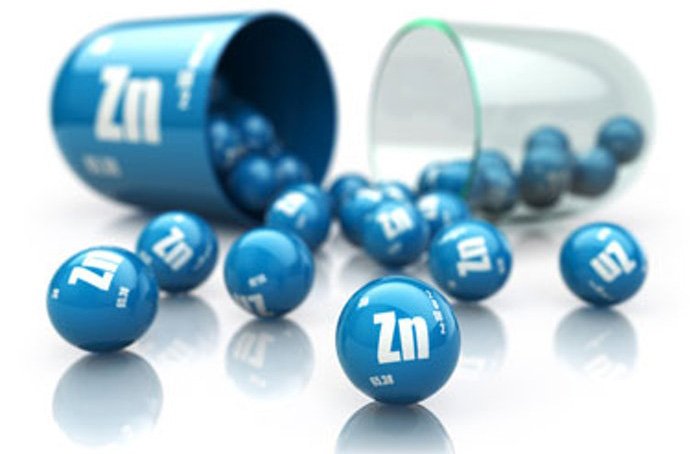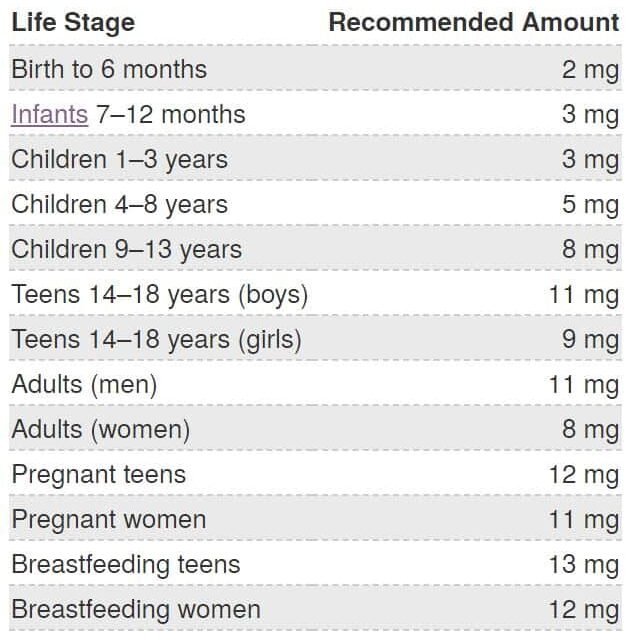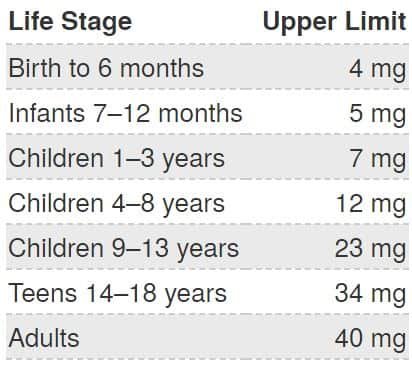turmeric Anti-Aging effects
Top #7 Turmeric: Anti-Aging effects If curcumin can really help prevent heart disease, cancer and Alzheimer’s, it would have obvious benefits for
Zinc is a trace element, present in small amounts in the body. It plays an important role in the metabolism of proteins, carbohydrates and fats. What are its health benefits? In what foods can you find it? When to supplement ?

Zinc is a trace element present in the body in very small quantities: in total, the body contains 2 to 4 grams, 60% of which is in the muscles and 20% in the bones. ” nevertheless it plays an important role in many vital enzymatic processes such as DNA synthesis, blood coagulation, immune defenses or growth”.
Its role : it’s most commonly known for its action on the skin, nails and hair, and for its antioxidant properties against oxidative stress. But its virtues do not end there. It also intervenes in the following processes :
♦ In immune system by increasing the number of T lymphocytes
♦ Wound healing
♦ DNA and protein synthesis
♦ Insulin metabolis
♦ Bone maintenance
♦ Development and proper functioning of the nervous system
♦ Preservation of taste and smell
♦ Prevention of prostate problems
♦ Production of sperm
Thanks to its anti-inflammatory and healing properties, it helps fight skin problems such as acne, psoriasis or dermatitis. It is also an essential element in the synthesis of keratin and collagen, proteins that make up our hair at 95%. Associated with vitamin B6, it gives them resistance, suppleness and shine. And as an antioxidant, it helps neutralize free radicals and thus slow down aging of the eyes and skin.
Zincemia is a measure of the level of zinc in the blood. Normally, the levels in the blood should be 11 mg for an adult (check your daily needs on the enclosed dashboard bellow ). However, it is quite difficult to measure the real level since its level varies significantly depending on the food consumed. Hypozincemia (abnormally low levels) is rarely seen except with cirrhosis. Note that a deficiency can cause growth disorders and immune and skin problems, especially with healing defects.

“The absorption of zinc is very variable (8 to 85%) depending on the food ingested. It is generally higher from products of animal origin than from plant origin”.
The main animal sources are: liver, cheese, meat, eggs, fish, cow’s milk.
The main plant sources are: whole grains, pulses, oil seeds, fresh vegetables and potatoes.
It is present in almost all multivitamin/mineral dietary supplements. It is also available alone or combined with calcium, magnesium or other ingredients in dietary supplements. Dietary supplements can have several different forms of zinc including gluconate, zinc sulfate and zinc acetate. It is not clear whether one form is better than the others.
Deficiencies can lead to many problems such as fatigue, developmental disorders, skin issues (such as acne and eczema) or difficulty in healing. This is because a deficiency weakens the immune system, which is less effective in fighting infections. In addition, deficiency will also lead to taste and smell disorders as well as sexual disorders with in particular a decrease in fertility in men.

Yes, if you get too much. Signs of too much zinc include nausea, vomiting, loss of appetite, stomach cramps, diarrhea, and headaches. When people take too much zinc for a long time, they sometimes have problems such as low copper levels, lower immunity, and low levels of HDL cholesterol (the “good” cholesterol).
The daily upper limits for zinc include intakes from all sources—food, beverages, and supplements. These levels do not apply to people who are taking zinc for medical reasons under the care of a doctor:
Yes. Zinc dietary supplements can interact or interfere with medicines that you take and, in some cases, medicines can lower zinc levels in the body. Here are several examples
Top #7 Turmeric: Anti-Aging effects If curcumin can really help prevent heart disease, cancer and Alzheimer’s, it would have obvious benefits for
Top #6 Arthritis Patients Respond Very Well to Turmeric Supplements Share on facebook Share on twitter Share on pinterest Share on
Top #5 Improved Antioxidant Capacity Share on facebook Share on twitter Share on pinterest Share on email Antioxidants are able to
Top #4 Turmeric could Be Useful in Preventing and Treating Alzheimer’s Disease Share on facebook Share on twitter Share on pinterest
Top #3 Turmeric Can Help Prevent (And Perhaps Even Treat) Cancer Share on facebook Share on twitter Share on pinterest Share
Top #2 Turmeric Lowers Your Risk of Heart Disease Share on facebook Share on twitter Share on pinterest Share on email
Statements on this website have not been evaluated by the Food and Drug Administration. Products are not intended to diagnose, treat, cure or prevent any disease. If you are pregnant, nursing, taking medication, or have a medical condition, consult your physician before using our products.
Disclaimer: this site is not a part of the Facebook™ website or Facebook Inc. Additionally, this site is NOT endorsed by Facebook™ in any way. FACEBOOK is a trademark of FACEBOOK, Inc.

Your Privacy Is Important To Us
This website uses cookies so that we can provide you with the best user experience possible. Cookie information is stored in your browser and performs functions such as recognising you when you return to our website and helping our team to understand which sections of the website you find most interesting and useful.
Strictly Necessary Cookie should be enabled at all times so that we can save your preferences for cookie settings.
If you disable this cookie, we will not be able to save your preferences. This means that every time you visit this website you will need to enable or disable cookies again.
More information about our Cookie Policy